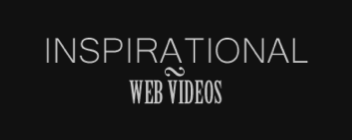10 Tips from Editors to Directors

Jonny Elwyn follows-up his popular article on what editors want camera operators to do to help out the process with an equally illuminating piece, this time focusing on the director/editor relationship.
My first article on Redshark News, 11 Things Editors Wish Camera Operators Always Did, seemed to have resonated with quite a few folks, so I thought I'd put down a few more thoughts on the complex creative marriage that occurs when directors are working with editors.
As with any close creative collaboration, personality, experience and personal idiosyncrasies all play a role in shaping how successful the union will be. Sometimes those differences create insurmountable conflict; other times, cinematic magic. But it is the professional editor's role to be what the director needs them to be at any given moment, and although the editor does have the opportunity to shape the final product in momentous ways, his-or-her work should ultimately all be in service of the director’s vision and producing the best possible end result.
With that in mind, here are 10 suggestions for directors on how to get the best from their editors.
1. It's a collaborative effort.
That means I want to bring all that I have to contribute to the project. I want to engage you in lively debate about the best way to shape the project. I want you to be open to trying new ideas and new approaches. I don't want to you to see me as only a button monkey.
2. What you have isn't what you had.
The editor is the one who has to stand in the gap between what the director thinks they have or wishes they had, and what they really have. We can only cut the footage you shot. Our job is to bridge that gap as much as we can.
3. Don't tell me when to cut.
No clicks, claps, points, taps or shouts please.
4. Leave me alone.
I need time to get on with things without you in the room. To get organized, watch through the footage, find the takes I like, try things my way, try crazy things that just might work but probably won't and to have the freedom to take a crack at things without wasting your time.
5. Be available.
If you're on the phone all the time, it's hard to collaborate. I'll need some quality time with you, at the right time, to help get your feedback, thoughts and collaborative energies in a focused way. You're the director after all - it's your project.
6. Be specifically general.
When working with actors it is common practice not to tell them you hated it when they said this word in that way. You'd say "once more with feeling." With an editor, if you say "the scene feels like it lacks energy," then I can go away and do things to amp it up a bit. If you say shave 5 frames off this shot and cut in here rather than there, things tend not to work out so well. Let me fix the note in the spirit of the note.
7. Be generally specific.
Towards the end of a project, it's OK to get more specific and granular with the details of your feedback. We want to make sure you get what you want and sometimes it's easier just to sit with you and give you that, especially if either option is a viable one.
8. Do not touch the screen.
9. Share Your Wisdom.
As an editor I've learnt much of what I know about filmmaking, narrative structure and creative ju-jitsu from the directors I've worked with. Your patient sharing of hard-won wisdom is gratefully received.
10. We sometimes get things wrong.
Usually spelling. I also think my most frequent fault as an editor, when collaborating with a director, is to dismiss an idea as one that "I've already tried and it didn't work…" Instead, I would be wiser to walk through the director's version of the idea once again – either to put to rest that it really won't work, or to be pleasantly surprised that it does.
- - - - - -
(Article Source)





 Post a Comment
Post a Comment
Reader Comments